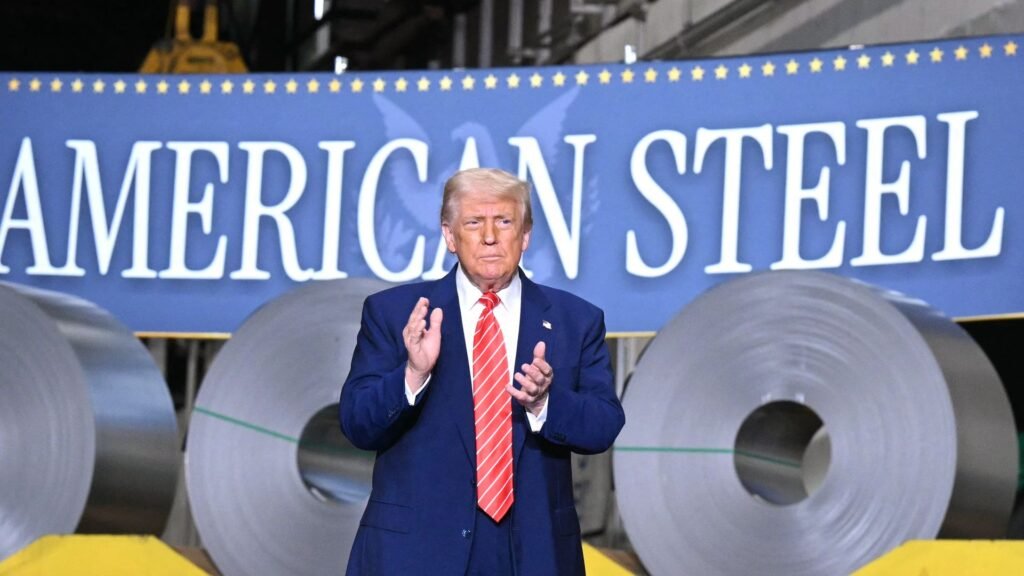Introduction
Trade tensions between Mexico and the United States have escalated recently over the issue of metal tariffs. The U.S. government’s decision to impose a 50% tariff on certain metals imported from Mexico has sparked significant backlash. Mexico has responded by threatening countermeasures if these tariffs remain in place. Understanding the implications of these Mexico metal tariffs is crucial, as they affect not only bilateral trade but also the broader economic and political relationship between the two neighboring countries.
Background on Mexico Metal Tariffs
What Are Metal Tariffs?
Tariffs are taxes imposed on imported goods, often used by governments to protect domestic industries or respond to unfair trade practices. The Mexico metal tariffs in question specifically target steel and aluminum imports, imposing a steep 50% tax that significantly raises the cost for Mexican exporters.
Historical Context of Mexico-U.S. Trade Relations
Mexico and the U.S. share a deep trade relationship governed by agreements such as the United States-Mexico-Canada Agreement (USMCA). Although these agreements aim to promote smooth trade, tariffs, and trade disputes have periodically strained the partnership, with metal tariffs being a particularly contentious issue.
Details of the Current 50% U.S. Metal Tariffs
Scope of the Tariffs
The 50% tariffs imposed by the U.S. affect primarily steel and aluminum products imported from Mexico. The rationale behind these tariffs centers on protecting American metal producers who have struggled with lower-priced imports and alleged dumping practices.
Impact on Mexican Industries
These tariffs have dealt a heavy blow to Mexico’s metal production and export sectors. Increased costs have reduced competitiveness, leading to concern among Mexican manufacturers and exporters who rely heavily on the U.S. market for their goods.
Mexico’s Threat of Countermeasures
Official Statements and Warnings
Mexican government officials have publicly condemned the Mexico metal tariffs, warning that the country will implement countermeasures if the 50% tariffs persist. Potential counteractions could target key U.S. industries and imports as a form of economic retaliation.
Potential Economic and Political Impact
The looming threat of countermeasures risks escalating the trade conflict, which could destabilize economic relations and have ripple effects across multiple sectors. Both nations face the possibility of hurting their own economies if the dispute intensifies.
Mexico to Announce ‘Measures’ Next Week if No Deal on U.S. Metals Tariffs
As tensions continue to rise over the ongoing metal tariffs, Mexican officials have announced that the country will unveil specific measures next week if a resolution is not reached with the U.S. government regarding the controversial 50% tariffs. This upcoming announcement signals Mexico’s increasing readiness to take formal action, emphasizing the seriousness with which it views the Mexico metal tariffs dispute.
Mexican authorities have stressed that these measures will be carefully calculated to protect their national interests while aiming to avoid an all-out trade war. However, failure to reach a deal could lead to significant retaliatory steps targeting U.S. industries affected by Mexico’s economy. This development highlights the critical need for urgent negotiations to ease the strain and prevent further escalation.
The announcement next week will likely play a pivotal role in shaping the future of Mexico-U.S. trade relations, making it a key moment in the ongoing saga of the Mexico metal tariffs. Both countries remain under pressure to find common ground before the economic consequences deepen on both sides.
Analysis of the Mexico Metal Tariffs Dispute
Economic Consequences for Both Countries
For Mexico, the tariffs threaten jobs and growth in the metal industry, a vital sector of its economy. For the U.S., while the tariffs aim to protect domestic producers, higher costs for manufacturers and consumers may result. The longer these Mexico metal tariffs remain, the greater the risk of economic disruption.
Diplomatic and Political Implications
Beyond economics, the tariffs and threatened countermeasures strain diplomatic ties. This dispute could complicate cooperation on other issues such as immigration, security, and broader trade policies. International bodies like the World Trade Organization (WTO) may become involved if negotiations stall.
What’s Next: Possible Resolutions and Outlook
Negotiation Paths
There remains hope for dialogue and negotiation to resolve the dispute. Both countries have incentives to de-escalate tensions, potentially leading to a rollback or reduction of the Mexican metal tariffs through diplomatic efforts.
Long-term Trade Strategies
Looking forward, both Mexico and the U.S. would benefit from strategies that promote stable, fair trade relations. This might include revisiting tariff policies and enhancing cooperation to avoid similar conflicts in the future.
Conclusion
The Mexico metal tariffs controversy is a significant flashpoint in the U.S.-Mexico trade relationship. Mexico’s threat of countermeasures signals the seriousness of the dispute and the potential risks of prolonged tariff battles. Moving forward, cautious diplomacy and constructive negotiation will be essential to safeguard the economic interests of both countries and maintain a healthy bilateral partnership.
Don’t Miss Out! Get the Latest News, Tips, and Updates from Us!
